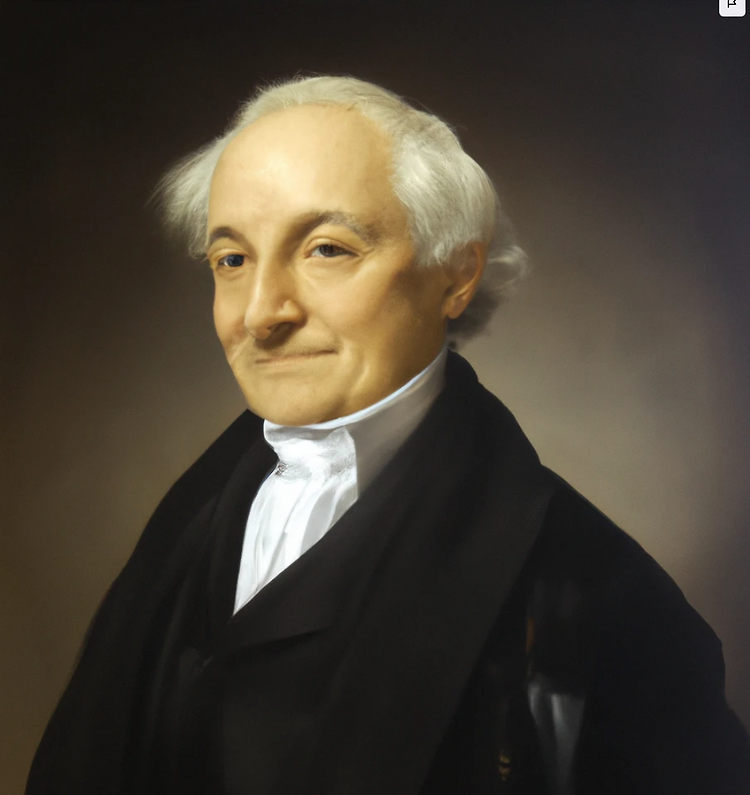

Biography
Thales of Miletus was a pre-Socratic Greek philosopher, mathematician, and astronomer who lived in the 7th century BCE. He is considered to be the first true philosopher in Western tradition, and is often referred to as the "Father of Western Philosophy."
Thales was born in Miletus, an ancient Greek city in Ionia (now part of modern-day Turkey). Not much is known about his early life, but it is believed that he was educated in Egypt and Phoenicia, where he learned about mathematics, astronomy, and other sciences.
Thales is best known for his work in mathematics and natural philosophy. He is credited with several important contributions to these fields, including the discovery of five geometric theorems, including the famous "Thales' theorem" which states that "an angle inscribed in a semicircle is a right angle." He also made important contributions to the field of astronomy, and is said to have predicted the solar eclipse of 585 BCE.
Thales' work in natural philosophy was also significant. He is credited with being the first to propose that the natural world could be explained by natural causes, rather than the actions of gods. This idea was a significant departure from traditional Greek thought, and would become a central tenet of Western philosophy.
In addition to his work in mathematics, astronomy, and natural philosophy, Thales was also an important figure in the political and economic life of Miletus. He is said to have used his knowledge of astronomy to predict a bountiful olive harvest, which he then used to make a significant profit by buying up all of the available olive presses.
Career and achievements
Thales' work in mathematics and natural philosophy was groundbreaking, and had a profound impact on the development of Western thought.
In mathematics, Thales is credited with five geometric theorems. These theorems, which include the famous "Thales' theorem" that states that "an angle inscribed in a semicircle is a right angle," laid the foundations for the development of Greek geometry.
Thales also made important contributions to the field of astronomy. He is said to have predicted the solar eclipse of 585 BCE, and is credited with being the first to propose that the Earth is a sphere.
In natural philosophy, Thales is best known for his proposal that the natural world could be explained by natural causes, rather than the actions of gods. This idea was a significant departure from traditional Greek thought, and would become a central tenet of Western philosophy.
In addition to his work in mathematics, astronomy, and natural philosophy, Thales was also an important figure in the political and economic life of Miletus. He is said to have used his knowledge of astronomy to predict a bountiful olive harvest, which he then used to make a significant profit by buying up all of the available olive presses.
Definitions and Theorems
Thales' Theorem
Thales' theorem states that if A, B, and C are points on a circle where the line AC is a diameter, then the angle BAC is a right angle. This can be written mathematically as:
$\angle BAC = 90^{\circ}$
Theorem of Similar Triangles
Thales also proposed the theorem of similar triangles, which states that if two triangles have all of their angles equal, then they are similar. This can be written mathematically as:
If $\triangle ABC \sim \triangle DEF$, then $\angle A = \angle D$, $\angle B = \angle E$, and $\angle C = \angle F$.
Congruence of Triangles
Thales also established the congruence of triangles, which states that if two triangles have all of their sides equal in length, then they are congruent. This can be written mathematically as:
If $\triangle ABC \cong \triangle DEF$, then $AB = DE$, $BC = EF$, and $AC = DF$.
Theorem of Proportional segments
Thales also contributed to the theorem of proportional segments, which states that in any triangle, the segments that connect the midpoint of one side to the opposite vertex are proportional to the other sides of the triangle. This can be written mathematically as:
If $M$ is the midpoint of $BC$, then $\frac{AM}{MC} = \frac{AB}{BC} = \frac{AC}{CB}$.
Properties
In addition to the above theorems, Thales also studied the properties of triangles and circles. He is known to have studied the properties of similar triangles such as the fact that corresponding sides are in proportion and that corresponding angles are equal. He also studied the properties of circles such as the fact that the diameter is the longest chord and that the center is equidistant from all points on the circumference.
Thales also made several other contributions to mathematics, such as his calculation of the distance between ships at sea, using the fact that the angle of elevation of the top of a distant object is equal to the angle of depression of the base of the object.
Overall, Thales' theorems, definitions, and properties laid the foundations for the development of Greek geometry and continue to be studied and used in mathematics education and various fields today.
Appraisal
Thales' ideas and achievements have been widely influential and have been studied and debated by philosophers, mathematicians, and scientists for centuries.
In mathematics, Thales' theorems laid the foundations for the development of Greek geometry and continue to be taught and studied in mathematics education today. His theorem of similar triangles and congruence of triangles were significant contributions to the field of geometry.
In natural philosophy, Thales' proposal that the natural world could be explained by natural causes, rather than the actions of gods, was a major departure from traditional Greek thought and set the stage for the development of Western philosophy. His ideas on natural causes had a profound impact on the development of science and continue to be studied and debated today.
In addition, Thales' contributions to the field of astronomy and his ability to predict a solar eclipse using mathematical calculations, demonstrated the power of observation and reason.
Overall, Thales' ideas and achievements have had a lasting impact on the development of Western thought and continue to be studied and debated by experts in various fields.
Anecdotes
One well-known anecdote about Thales is that he was so engrossed in his observations of the stars that he fell into a well. A passing Thracian servant girl is said to have mocked him for his absent-mindedness, saying "Surely even in his own city, he is not at home".
Another anecdote tells of how Thales was able to use his knowledge of astronomy to predict a bountiful olive harvest, which he then used to make a significant profit by buying up all of the available olive presses. This story highlights Thales' ability to apply his knowledge to practical problems, as well as his business acumen.
Conclusion
In conclusion, Thales of Miletus was a pre-Socratic Greek philosopher, mathematician, and astronomer who lived in the 7th century BCE. He is considered to be the first true philosopher in Western tradition, and is often referred to as the "Father of Western Philosophy." He is credited with several important contributions to mathematics, astronomy, and natural philosophy, which have had a lasting impact on the development of Western thought. His ideas and achievements continue to be studied and debated by experts in various fields.

You know what's cooler than magic? Math.
포스팅이 좋았다면 "좋아요❤️" 또는 "구독👍🏻" 해주세요!



